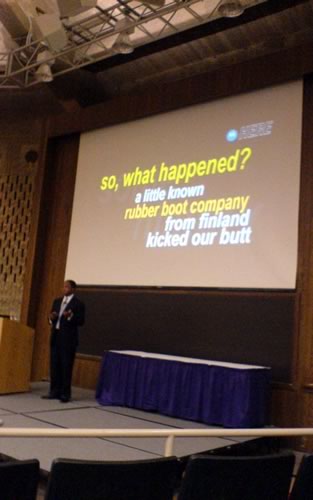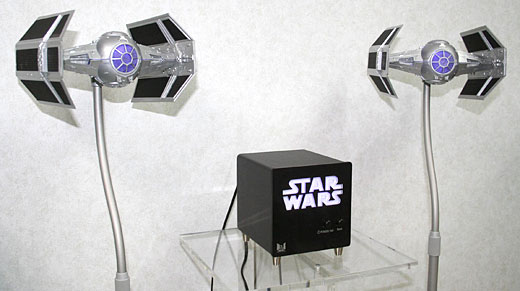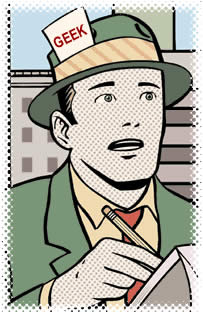According to this posting at Reddit, the photo below was taken at a Motorola conference. It’s refreshing to see such candor in this type of PowerPoint presentation:

According to this posting at Reddit, the photo below was taken at a Motorola conference. It’s refreshing to see such candor in this type of PowerPoint presentation:

Yeah, this should be screamingly obvious to longtime blogosphere denizens, whether readers or writers, but as George and I like to say, “There’s a lot of value in repeating the obvious.” So in that spirit, I point you to this Bivings Report article, 16 Ways The News Media Can Use Blogs. The 16 ways are:
The article goes into detail and provides examples for each one of these 16 ways.
HotelChatter’s top 5 list of hotels that cater to geeks:
For the Star Wars fan who’s already bought all the toys, posters, movies, book and model kits, here’s a set of TIE fighter speakers…

Jeremy Zawodny points out the dangers of having an automated news feed and stock ticker on your company’s home page…
You know you’re living in the 21st Century when you’re accused of murder and your computer is seized for evidence, but it become even more painfully apparent when they find a history of Google searches for incriminating phrases like:
…as well as searches for gun laws in New Jersey and Pennsylvania.
(By the bye, those search links above will run a Google search, so if you’re planning on icing someone, don’t click on them, mmmkay?)
The moral of the story, from a Machiavellian point-of-view: when Googling for murder techniques, use an OS that you boot from a USB stick.
 “In the new world of network-enabled information gathering and dissemination,” writes Tim O’Reilly in the O’Reilly Radar post Journalism Through Computer Programming, “programming is as critical a skill as writing and photography.”
“In the new world of network-enabled information gathering and dissemination,” writes Tim O’Reilly in the O’Reilly Radar post Journalism Through Computer Programming, “programming is as critical a skill as writing and photography.”
Tim wants to keep recent programmers-as-journalists meme alive (see our previous posts, Newspapers Need Nerds! and Nerds and Newsrooms for more), and it’s an interesting idea. In a world where computers have found their way into just about every facet of life, it only makes sense for people with computer programming skills — even if they’d never think of themselves as computer programmers — to follow.